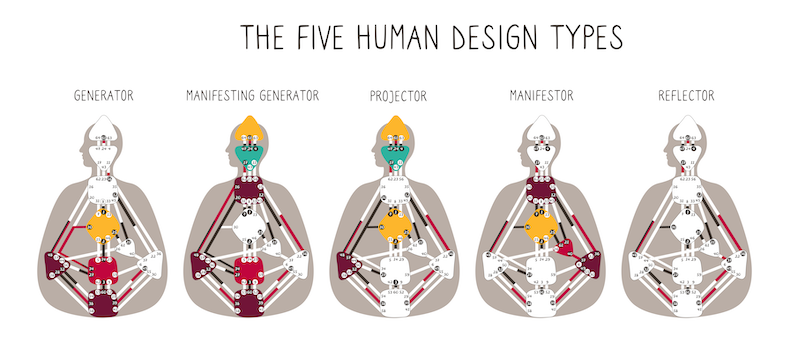Wix eCommerce vs Shopify | 8 Top Ecommerce Platforms
Regarding Wix eCommerce vs Shopify which one is better – While Shopify offers superior sales capabilities and is generally better suited for managing a larger business, Wix is excellent if you want an easier-to-use builder and intend to launch or manage a smaller store.
The decision between Wix eCommerce vs Shopify comes down to what you want to do with your website. If you require a feature-rich, scalable web store, Shopify is among the best e-commerce systems. Even while Shopify’s plans can be expensive, the 6,000+ third-party connections and numerous built-in e-commerce capabilities make it money well spent.
Both Wix and Shopify are popular online company platforms. But which is the superior option? I’ll compare the two in this post to see which offers the greatest tools for achieving your objectives, Wix or Shopify.
Getting started with Wix eCommerce vs Shopify:

So that you may sign up for the platforms as soon as possible, both Wix and Shopify have shortened their setup procedures. In both instances, a credit card is not even required because Wix offers a free plan that allows you to test out the builder, while Shopify offers a 14-day free trial.
The initial setup process for Wix and Shopify is incredibly simple and free. In fact, you can create your store before committing. Wix offers substantially more design versatility whereas Shopify keeps things simple. However, for a novice user, Shopify makes the process of creating a website much quicker and easier.
What is Shopify Website: Quick Overlook
Shopify is an eCommerce SaaS (software-as-a-service) solution that is designed to make it simple for people to launch online stores. One of the most widely used shopping cart solutions worldwide, Shopify presently has over 1,7 million live stores.
What is Wix Website: Quick Overlook
With over 830,025 active websites, Wix is a drag-and-drop website builder. In addition to offering clients enhanced shopping and payment experiences, Wix eCommerce also offers tools for managing finances and businesses.
Wix eCommerce vs Shopify, which one is more user-friendly:
Shopify never claimed that it was the simplest to use, despite its assertions that it is the greatest option for online stores. However, their user interface is so well thought out that you just need a few clicks to launch your first store in a matter of minutes.
Like many other products, Wix makes similar claims about being the greatest. They really insist on being extremely user-friendly when building websites and e-commerce stores, though.
Wix eCommerce vs Shopify, who has the best eCommerce templates?
Shopify’s 60+ themes undoubtedly make things simple. They appear fantastic on computers and mobile devices because they are contemporary, slick, and responsive. The only drawback is that just a few of the themes are free; most need a one-time purchase of between $140 and $300.
Wix offers 60 e-commerce templates that are totally free. We think their catalog galleries are great, and they have the same sleek, contemporary appearance as Shopify’s. Wix’s templates aren’t always fully responsive, which means you sometimes have to manually rearrange pieces to display them.
Wix eCommerce vs Shopify which one is faster?
Based on the testing, Wix isn’t bad, but Shopify has a slight advantage. But Shopify should still get credit for this because you can examine the source files and personally optimize the code (if you know how).
According to a Pingdom test, the Shopify website received an A grade (92%) and a score of 85. These are excellent results, especially considering the loading time of one to four seconds.
With a GTMetrix Test score of 65% (D rating) and a Pingdom test result of 82, Wix appeared to be a little bit slower. In certain testing, the load time reached 9 seconds, which isn’t good for your users or SEO. Wix also performed poorly in our extensive speed test, which included 11 other website builders.
What Makes Shines & Falls Short Wix eCommerce vs Shopify:
Wix and Shopify are two extremely well-liked e-commerce website builders. Easy-to-use eCommerce store builder Shopify is renowned for its top-notch customer service. Hundreds of templates and Wix’s simple drag-and-drop editor make it simple to build a polished online store.
Shopify’s strong points:
With Shopify, you can quickly customize layouts, and all of their themes are mobile-friendly. Managing your business is simple with the Shopify Mobile app, which features tools for dropshipping, a calendar, email marketing, upselling, and more. Before establishing your store, you should make sure that this feature is accessible because the tax computations are depending on your location.
- Drag-and-Drop Editor
- Plenty of Customization Options
- Mobile Responsive Themes
- Shopify Mobile App
- Versatile App Store
- Automatic Sales Taxes
- Customer Support Availability
- Unlimited Bandwidth
Where Shopify Falls Short:
You will need to buy a domain if you choose one of the Shopify plans. When you use an external payment gateway, transaction costs are applied to Shopify plans.
You can only create a maximum of three alternatives per product in your store. You’ll need the Advanced Shopify plan if you want access to all of Shopify’s features.
- No Domain Included
- Transaction Fees
- Limited Product Options
- Higher Pricing
Wix’s strong points:
Use one of the more than 500 templates available if you don’t want to create your website from scratch to save time. Every plan also comes with a free domain for a year and a custom domain, increasing its worth without any additional payments. For all 50+ payment providers, Wix web stores automatically use secure payment gateways that are PCI DSS compliant.
You may upload social media files, print the logo on branded items, and incorporate it onto your website. Other popular websites like Facebook, Instagram, Amazon, and eBay are all integrated with Wix. You can simply manage your website while on the road with the Wix Owner app.
- Drag-and-Drop Design
- No Transaction Fees
- Tax Automation
- High-grade Security
- Unflagging Reliability
- Logo Maker
- Many Platform Integrations
- Wix Owner App:
Where Wix Falls Short:
Wix isn’t the best solution for big enterprises with dozens of items because of its 50 GB storage cap on the Business VIP plan and its restricted customization choices.
Wix is infamous for its poor loading times, which may cost your company potential consumers. You must host your website with Wix in addition to using the platform. Additionally, there are fewer callbacks available in other languages.
- Limited Storage Space, Customization & Support
- Slow Loading Speeds
- No Hosting Choices
How to Picks Excellent Premium Templet – Wix eCommerce vs Shopify:
If you’re not quite the world’s next design superstar, a solid theme is a great place to start for your website. Let’s take a closer look at the Wix and Shopify themes available:
Wix: There are approximately 700 templates available on Wix, all of them are free and offer a wide choice of subject matter.
Shopify: Only nine of Shopify’s more than 80 themes are free, while the others cost between $100 and $200. If the selection appears too limited, you can also browse third-party templates.
Wix has every design option imaginable. There are solutions that are both very graphic and minimalist. Shopify, on the other hand, places more of an emphasis on a simplistic design that helps draw attention to the products rather than the storefront.
Wix vs Shopify: Basic eCommerce comparison:
Although Wix eCommerce is quite capable, it is not the main focus of this platform.
Shopify is a true all-in-one selling solution that has placed a strong emphasis on everything eCommerce.
Wix eCommerce vs Shopify – Basic Features:
The item administration interface on Wix is incredibly easy to use, allowing anyone to add and manage both physical and digital things.
The following are the primary Wix eCommerce features:
- Collections, numerous product variations, and simple categorization
- Multi-channel product management in sync
- Options for integrated shipping
- Avalara Owner App’s automated sales taxes for adding new items and processing orders on the move
The following are the primary Spotify eCommerce features:
Shopify offers a wide range of customization possibilities for each product and category, in contrast to Wix. It also makes tracking your inventory and changing its settings incredibly straightforward.
- There are many products, collections, and organizing choices.
- Accounts for customers and subscription sales
- Memberships, gift cards, and digital goods
- Shopify’s automated tax system
- Flexible costs and integrated shipping choices with major carriers
- Mobile application for managing stores and processing orders
- POS and payment system that is integrated
Payment options – Wix eCommerce vs Shopify
Let’s evaluate the two systems’ respective payment gateways to see which one makes the most sense from a business standpoint.
Wix payments:
- You may accept all popular debit and credit cards, including Visa, Mastercard, and American
- Pay with Express, Discover, Diners, CUP, JCB, or Maestro.
- 2.9% transaction fee plus $0.30 USD.
- Supported Countries: Austria, Belgium, Brazil, Canada, Finland, Germany, Ireland, Italy, Lithuania, the Netherlands, Portugal, Spain, Switzerland, the United Kingdom, and the United States
Shopify payments:
- You can accept the following forms of payment: Apple Pay, Google Pay, Amazon Pay, and major debit/credit cards.
- Depending on the plan, the transaction cost ranges from 2.9% to 2.4% plus 30 USD.
- supported Countries: Australia, Austria, Belgium, Canada, Denmark, Germany, Hong Kong Special Administrative Region, Ireland, Italy, Japan, Netherlands, New Zealand, Singapore, Spain, Sweden, United Kingdom, and the United States.
How to Market your Business with Wix eCommerce vs Shopify:
Wix has more built-in SEO optimization solutions, but Shopify only provides the fundamentals and relies on third-party apps.
Wix has a stronger focus on internal features, providing a strong SEO package and a dedicated email marketing solution.
Because of its massive app store, Shopify has access to most of its marketing functions. However, most apps come with additional costs.
Wix vs Shopify SEO:
When it comes to SEO, Wix is pretty good. It offers the SEO Wiz tool for new users. It helps index the website on search engines and add keywords to the titles and descriptions while guiding you through the very fundamentals of SEO.
In contrast, Shopify’s search engine optimization capabilities aren’t all that sophisticated. Everything can be changed and edited, but it’s not as easy as it might seem.
Wix is, therefore, more of an internal SEO expert, whereas Shopify handles the essentials and lets third-party solutions handle the rest.
Pricing Comparision Wix eCommerce vs Shopify:

Wix is less expensive than Shopify because it offers three eCommerce plans that start at $23 per month. Three standard Shopify eCommerce subscriptions, starting at $29 per month, are available in turn. Additionally, there is Shopify Lite ($9/month) for easy payment integration on any website and Shopify Plus for businesses (starting at $2,000/month).
Let’s have a quick look what are:
- Basic eCommerce website features
- Wix vs Shopify pricing
- Wix eCommerce plans
Wix eCommerce plans:
The plans cover a lot of ground. They all come with unlimited product listings and abandoned cart recovery—both necessary to get you going. Also included are free domains, SSL, and PCI compliance.
Your sales on Wix are completely free; however, the payment processor will charge a fee. The most practical choice is Wix Payments, which charges 2.9% of the transaction + $0.30. Therefore, factor this into your budgetary projections.
1. Business Basic ($27.00/month): 20GB of storage, $300 in advertising credits, countless products, abandoned cart recovery, and social media sales.
2. Business Unlimited ($32.00/month): Upgrading storage to 35GB, automating sales tax, enabling subscription sales and dropshipping, as well as offering more sophisticated shipping options.
3. Business VIP ($59.00/month): Moreover to the below features, priority assistance, customized data reports, loyalty program functionality, additional reviews, and sales tax computations, 50GB of storage is also available.
Shopify eCommerce plans:
Don’t base your decision on Shopify’s plan solely on the cost. Think about your sales. Smaller businesses may be fine with Shopify Basic, however, larger ones should think about Shopify Advanced.
Shopify Website plans:
- Basic Shopify ($29.00/month)
- Shopify ($79.00/month)
- Advanced Shopify ($299.00/month)
- Shopify Lite ($9.00/mo)
- Shopify Plus (from $2,000/mo)
However, some calculations must be made in order to really choose a plan since… Fees for transactions.
- The standard Shopify fee for each transaction is 2.9%+30.
- Shopify charges a transaction fee of 2.6% plus 30 cents.
- Every transaction on Advanced Shopify carries a 2.4%+30 charge.
Shipping Options – Wix eCommerce vs Shopify

If you’re new to this, read the Quick Guide to eCommerce shipping from A to Z before comparing the shipping choices for Wix vs. Shopify.
Wix Shipping Options:
It’s a little cumbersome with Wix that you could need shipping tools to help you with international shipping payments. When you track purchases and define tax regulations for each product, Wix does not provide printable shipping labels.
Wix Delivery Options: choices for delivery and pickup Wix enables you to design, add, and use third-party shipping apps on your website to increase your shipping possibilities.
Shopify Shipping Options:
Instead, Shopify is there for you at every stage of the convoluted delivery process, from free shipping to coordinating with alternative shipping companies. You can set up your shipping costs (free shipping, flat rate, depending on region, etc).
Shopify Delivery Options: You or your team may deliver local orders more easily using the Shopify Local Delivery app. You can map delivery locations, make order lists, and improve delivery routes all from the app. Both the Shopify mobile app and the Shopify admin can be used to access the app.
Shopify Dropshipping:
You have access to dropshipping options with Shopify regardless of your plan. Users of Shopify can sell an unlimited number of products using Oberlo, the company’s own dropshipping program, in addition to requesting assistance from a third-party app like Dropified.
Wix Dropshipping:
If you want to use any third-party apps that grease the wheels of dropshipping, you must upgrade to the Business Unlimited or Business VIP subscription first. Shopify and Wix both help store owners in starting a dropshipping business.
How to discover Wix eCommerce vs Shopify POS support?
You’ll be happy to know that Wix and Shopify both offer their own POS solutions for fusing online and offline experiences if you run a real store. There are a few notable differences, though.
You need to take point-of-sale (POS) systems more seriously if you want to run both online and offline stores and increase sales.
Wix POS:
Wix has its own Wix POS system, which is accessible to a limited number of US-based retailers. Because of this, the majority of Wix users must configure POS integration rather than using Wix POS.
Shopify POS:
Shopify, meanwhile, is known for its unmatched POS capabilities. It offers a limitless array of advantages as well as thorough reporting and analytics. Discover Shopify POS’s features and costs right away.
Wix eCommerce vs Shopify who is POS’s Winner: There are no surprises here; Shopify wins the POS competition with greater features, optional additional hardware, and wider availability. However, Wix POS can still be worth considering if you’re in the US because it provides free options (like local delivery and staff accounts) that Shopify would charge for.
Apps Comparision – Wix eCommerce vs Shopify:
Both Wix and Shopify offer mobile apps that let you manage your store while on the go. The Shopify apps are better suited for e-commerce, while the Wix apps are excellent for people who need to make general changes to their website.
Wix mobile app: The “Wix Owner” smartphone app is made by Wix. It can be used to add and amend material to websites, manage inventories, and provide simple point-of-sale functionality to US users.
Shopify mobile app builder: The Shopify POS app is for Shopify users who are operating in a “point-of-sale” scenario, whereas the Shopify app is a general-purpose tool that helps you manage your store on the move.
Conclusion: Wix eCommerce vs Shopify:
For anyone looking to create a “general-purpose” website, Wix is ultimately the more obvious option of the two platforms. It is more suited for those users because of its website layout tools, email marketing functionality, data gathering, and a greater selection of templates. For users who want to mix content creation with sporadic selling, it provides a lot of “bang for the buck” and is unquestionably an option worth considering.
But Shopify is unquestionably a better option for eCommerce applications that are more suited to professionals. This is because Shopify is a much more functional and sophisticated option for anyone looking to build an online store thanks to its advanced eCommerce features, fully responsive templates, support for AMP on product pages, extensive dropshipping options, true multi-currency selling functionality, and wide range of integrations with other important apps.
FAQs:
What are the Top Ecommerce Platforms?
As compared to Wix eCommerce vs Shopify both are top-notch eCommerce systems, there are a number of additional options with their own benefits. Check out our top selections for the best e-commerce platforms to find the greatest fit for your unique requirements.
Wix: The most adaptable and customizable platform
Squarespace: The best e-commerce platform for creatives
Bluehost: Best for hands-off WooCommerce store setup
BigCommerce: Best for medium-sized to large stores
Shopify: The best single eCommerce platform
WooCommerce: Best for WordPress websites
OpenCart: Best for selling digital goods
Ecwid: The best platform to integrate with
What is the difference as compared to Wix vs Shopify vs WordPress:
For brand-new bloggers searching for a user-friendly interface, WordPress is a fantastic choice. For smaller enterprises like freelance businesses, Wix is a good choice. Shopify is a great option, though, if you want to grow your business from a tiny operation to a major corporation.
See Also:
Shopify vs Wix ecommerce- eCommerce Wix vs Shopify – Wix eCommerce pricing vs Shopify – Shopify or Wix for eCommerce – why is Shopify better than Wix – Wix and Shopify comparison





